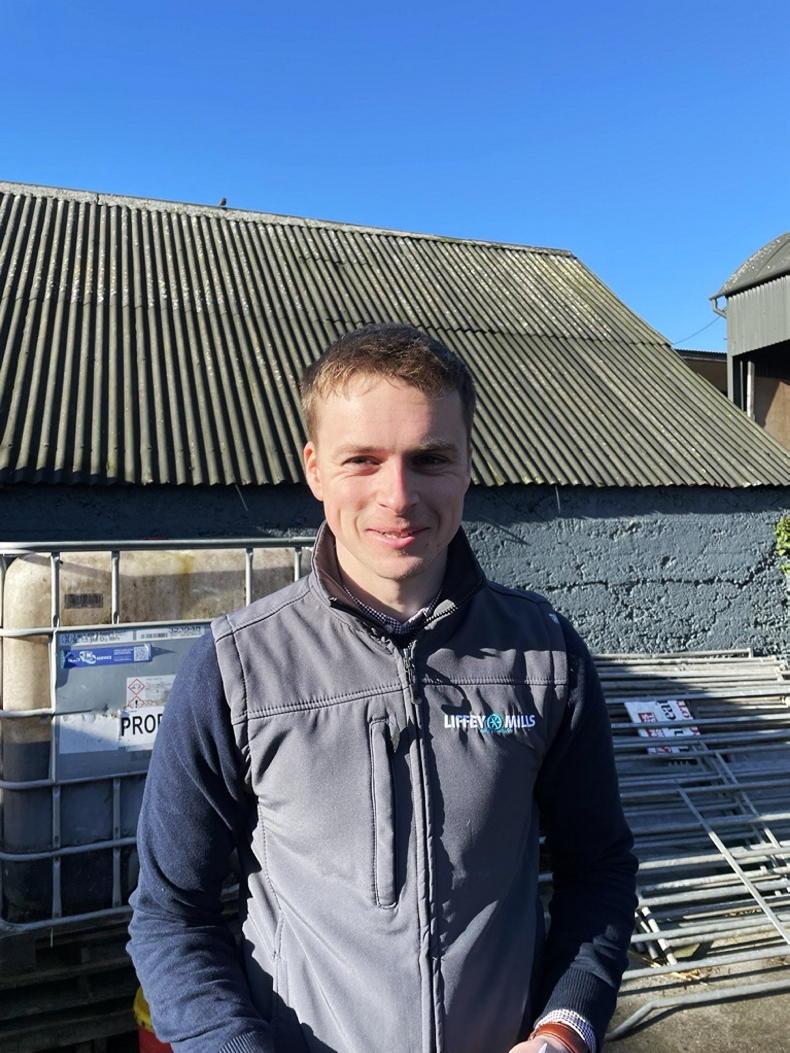Over 180 students visited Tullamore Farm on 27 February as part of Agri Aware’s annual Farm Walk and Talk series, swapping the books for an immersive day of learning. The initiative will see over 4,000 students attend 15 events across 11 farms in the coming weeks to bring ag science students out of the classroom and educate them through practical learning.
Over 180 students visited Tullamore Farm on 27 February as part of Agri Aware’s annual Farm Walk and Talk series, swapping the books for an immersive day of learning.
The initiative will see over 4,000 students attend 15 events across 11 farms in the coming weeks to bring ag science students out of the classroom and educate them through practical learning.
Those who attended the event on the demonstration farm in Tullamore experienced the realities of the subjects they are taught each day in the classroom. There were talks on the different breeds of cattle, examining soil profiles, farm safety, dairy farming, sheep systems, grassland management and beef breeding.
“Those who speak at Farm Walk and Talk across the events have excellent knowledge and understanding of the curriculum and provide another voice in terms of reinforcing what teachers teach in the classroom,” says Marcus O’Halloran, executive director of Agri Aware.
With an 11% drop in the number of students who sat the Leaving Certificate exam last year, concerns have been raised by teachers and academics about the syllabus and specifications that were introduced in 2019.
There is a working group reviewing the curriculum, and amendments are expected by 2027.
Irish Country Living caught up with some teachers and students who attended the educational event in Tullamore to find out what they thought of the practical learning experience and how they are finding the course.
Teacher James Madden:
Clonaslee College, Co Laois

James Madden, Clonaslee College, Co Laois.
“I brought my students here today for the hands-on experience and to give them a chance to see the practicalities of farming compared to the theory in the classroom. It gives them great insight into how farms work and allows them to see livestock in person.
“We generally have really good numbers doing ag science; at the moment, we have a 50/50 split of students from farming and non-farming backgrounds. The new course has become easier since it was introduced in 2019; we understand the project better now, and I corrected for the state exams, so I have a good idea of how it works.
“The challenge with it is the length of time between generating your initial idea, doing your investigation and doing up the report; that’s the biggest challenge I find. When the new course comes in in 2027, if it could be reduced a little or more specified, it would make it easier. The theory is good, and I like the cross-cutting themes and how they link in with the different strands."
Teacher Ruth Hennessy:
Coláiste Naomh Cormac, Co Offaly

Ruth Hennessy, Coláiste Naomh Cormac.
“We are lucky, we are from a rural background, so students are so interested in agriculture, but you always have a few students not from a farming background, which is no disadvantage at all, but it’s great for them to get out of the classroom and see everything first-hand.
“I think the curriculum is really good; it links an awful lot more than the last one, and the students are seeing the whole picture rather than strand by strand. They are realising the impact of soil on dairy and how important all of these are.
“The time constraints and resources are a massive challenge in terms of the project. It depends on the resources you have in the school and the extent to which you can do the project for some of them. Some will have a straight-up advantage compared to other schools concerning that.
“They are asking for feedback at the minute; you can give your opinion on the course for them to make changes that suit the students.”
Student Molly McGlynn:
Kildare town CS, Co Kildare

Molly McGlynn, Kildare town Community School.
“I am from a dairy farm in Brownstown in the Curragh. Growing up, I was always involved on the farm, helping out with the jobs. Some parts of the course are tougher than others, but I do like it. I enjoy learning about the soil, and we have just started the livestock, which I have found interesting.
“I think there are a lot of opportunities for young people, particularly with the environmental and sustainability side of things.
“I am looking into courses in UCD and SETU Waterford. I am looking forward to getting out on the farm today to see what we have been looking at in the books, to see it in real life and to put a picture on it.”
Student Luke Bracken:
Coláiste Naomh Cormac, Co Offaly

Luke Bracken, Coláiste Naomh Cormac, Co Offaly.
“With a beef farm at home (in Kilcormac, Co Offaly), studying the subject in school was an easy choice for me. I am heavily involved on the farm and regularly feed the animals. With a Simmental stock bull and Charolais cows, we have very good cattle.
“Everyone thinks they know a lot when you’re growing up on a farm, but you don’t know it all.
“It’s nice to experience a different farm enterprise and see what they do here and hopefully, bring some of it back to the home farm.
“I wouldn’t write off doing it in college, and I do think there are serious opportunities for both men and women.”





SHARING OPTIONS: